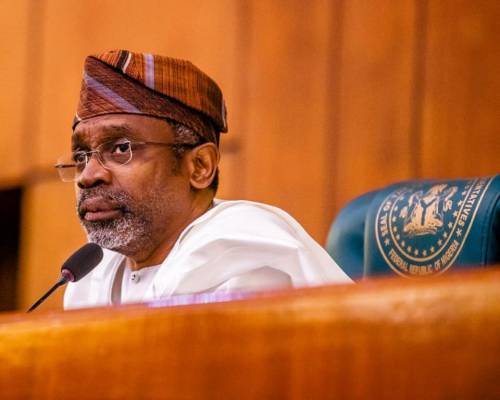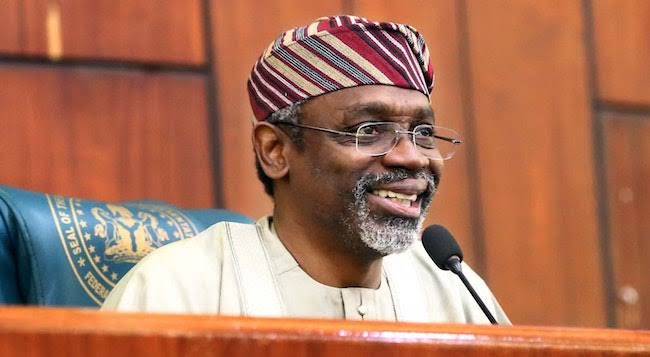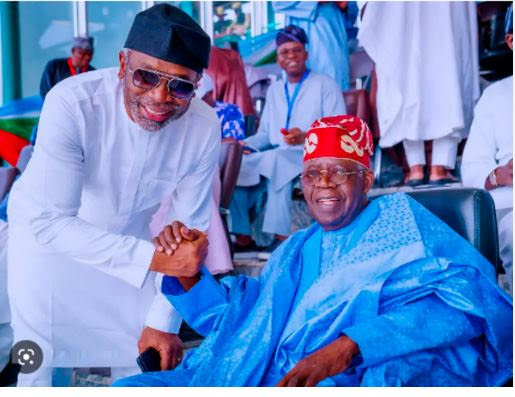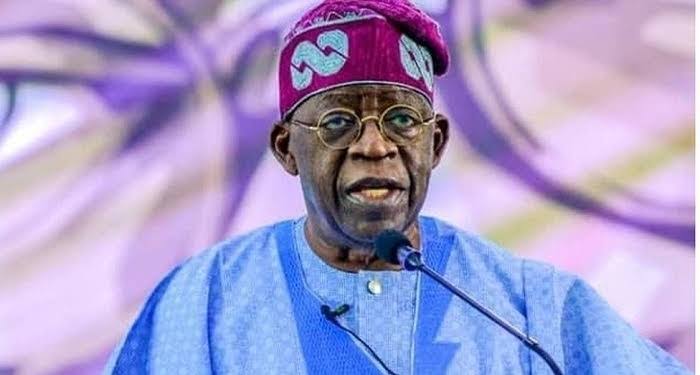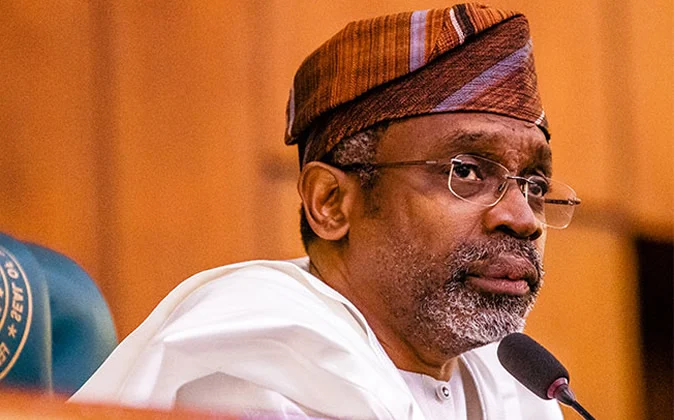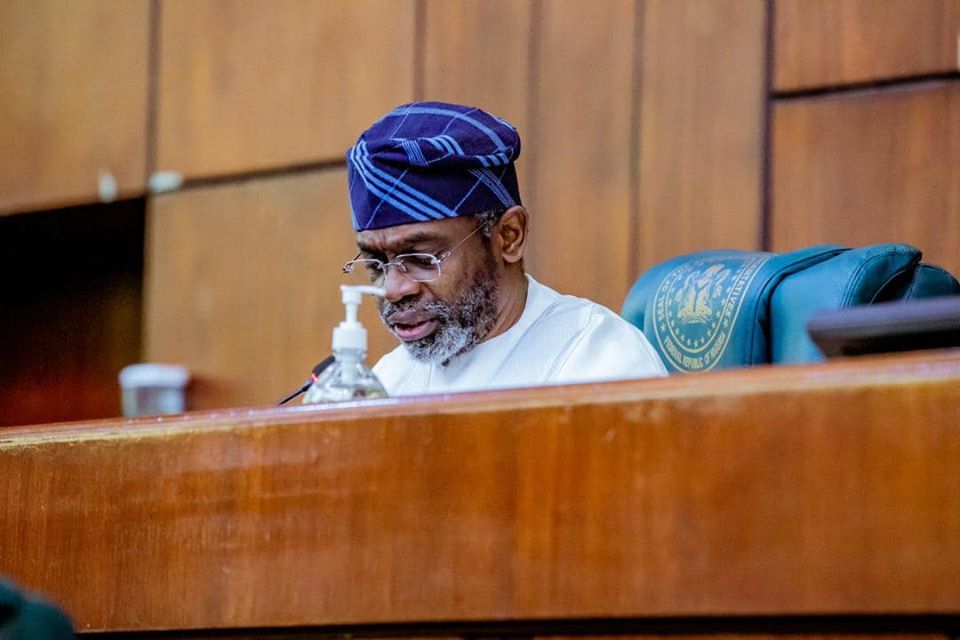The Speaker of the House of Representatives, Rep. Femi Gbajabiamila on Wednesday adjourned plenary indefinitely over fear of possible impeachment plot by some lawmakers.
Gbajabiamila, who presided over plenary after weeks of recess, called for adjournment over speculation of his impeachment.
He hinged the adjournment on the current induction by members-elect.
It was gathered that some lawmakers had perfected plans to impeach Gbajabiamila over the imposition of Rep. Tajudeen Abbas as the consensus candidate for the 10th House of Reps. Speaker
Some of the lawmakers who spoke with NAN on the impeachment plot under the condition of anonymity alleged that the speaker adjourned the plenary because of the fear of impeachment .
Rep. Ahmed Wase, the Deputy Speaker had in a swift move opposed Gbajabiamila, claiming the adjournment was needless but it was rejected.
Wase said the adjournment was not proper; adding that the induction could be going on simultaneously with plenary just like it was done at the Senate.
According to Wase, I respect the view of distinguish colleagues, Rep Ibrahim Isaka, who moved for the adjournment, but I think Mr Speaker this institution has a lot memories.
“There has never been a time because of induction the House suspended plenary.
“I don’t know the rate of attrition in terms of those who are back to the House compared to those who are now not returning, that we have to adjourn the House because of induction.
“I think there are many issues in the country that we need to face and tackle; we are running out of time Mr Speaker, we have just today and tomorrow for the week.
“We lost yesterday, I want to beg my brother to consider his own stand, he should know that in any way that there is nowhere in our own rules that says that we are doing induction.
He said the days for sitting in the House were clearly stated out in the House order.
Earlier, Rep. Isaka (APC-Ogun) had come under Order 6, 1 and 2 for mater of privileges to move his motion.
According to him, my point of order is that today as we speak, induction programme is on-going at the ICC center, which I am privileged together with other members to be part of Batch B.
“Last week because of this same programme the House adjourned, the plenary was not in session but today because of the plenary I have to be here while this programme is ongoing.
“I cannot be properly accommodated on the programme at the induction ground alongside plenary.
“That is why I am coming under order of privileges order 6,1,2,3. Mr Speaker, my prayer is that the House do adjourn to allow us participate in the programme,” he said.
Isiaka urged the House to reconvene after the programme, saying, “I am not the only victim of this, there are other members who are complaining about their privileges. I so move.”
Rep. Yusuf Gagdi (APC-Plateau), one of the aspirants for the 10th National assembly speaker raised his hand and attempted to speak but was equally ignored.
Meanwhile, the Senate has been sitting since the induction of lawmakers began, while the House of Reps which reconvened on May 17, immediately called for adjournment after many postponements.
Also, Rep. Benjamin Kalu (APC-Abia) was chosen as the consensus candidate for the post of a Deputy Speaker.
This was said to have angered some of the aspirants who now constituted themselves as G-7 to oppose the consensus candidate allegedly imposed by Gbajabiamila.
Among the G-7 are: Rep. Ahmed Wase (APC-Plateau) Rep Yusuf Gagdi (APC-Plateau) Rep. Sani Jaji (APC-Zamfara), Rep. Sada Soli (APC-Katsina), Rep. Alhassan Ado-Doguwa (APC-Kano) and Rep. Aliyu Betara (APC-Kano).
Speaking on the issue, Rep. Abubakar Nalaraba (APC-Nasarawa) said he was aware of the alteration made in the house rule to favour Gbajabiamila’s preferred candidate.
“There are some agitations by members because there is a particular alteration from the house rule which was conspicuously inserted and has never been deliberated upon at the plenary or in the vote and proceedings.
Sequel to this, he said, “some members promised to take it up with him and to bring it as Order of Privilege in the house so that members would discuss why would the insertion be in the House rule in the 10th Assembly.
“I think that might be the reason why he adjourned the house and that insertion was done probably to make the election seamless for his preferred candidate.’’
The doctored standing rules referred to as the 10th edition cited, has a new provision for electing the Speaker and Deputy through an open ballot instead of the existing rule of secret ballot that has been in use since 1999.
Section 2 (f) (iii) of the controversial clause captioned “election of presiding officers” stated that, “every member voting shall name clearly and in the open the candidate of his choice.”
Gbajabiamila is being accused of single-handedly manipulating the rules of the House to edge out more credible aspirants in favour of his preferred candidate Rep. Tajudeen Abbas.
Attempt by NAN to get the reaction of Mr Lanre Lasisi, Special Adviser on Media and Publicity to Gbajabiamila was abortive as he did not reply the SMS sent to him.
![BREAKING: Tinubu nominates Wike, El-Rufai, Umahi, 25 others as ministers [FULL LIST]](https://thenewsguru.ng/wp-content/uploads/2019/09/Screenshot-2022-08-04-at-7.52.38-AM.png)
